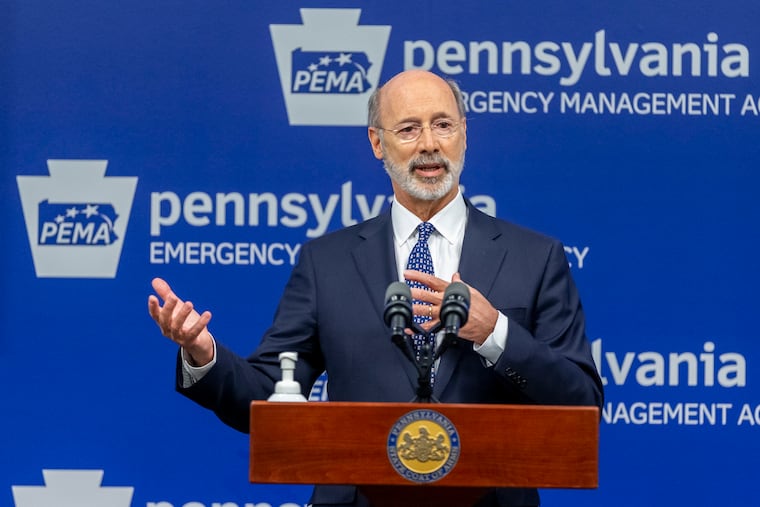Philly voters should reject ballot question legalizing marijuana | Opinion
Legalization is touted by supporters everywhere as a bold social justice initiative, writes Kevin Sabet. In reality, the legal industry today is overwhelmingly white, male, and corporate.

On Election Day, Philadelphians will vote on a ballot question asking decision makers in Harrisburg to create a recreational marijuana industry. This measure is being sold by its proponents as a grand solution for public health, social justice, and consumer safety.
But it is far from any of that. Instead, it is about creating a new, commercial trade that peddles high potency, more addictive marijuana products on every street corner.
The marijuana of today is not the marijuana of the past. Just a few decades ago, marijuana was composed of about 5% THC, the chemical that gives the drug its potency. Now, marijuana products are often as high as 99% THC. Gone are the days of “Woodstock Weed” — the nickname given to low-quality marijuana products; now the industry is taking its cues from Big Tobacco by hiring powerful lobbyists from companies like Altria, the parent company of Marlboro and Juul.
In fact, Altria has a major financial stake in the industry. They have already invested nearly $2 billion in legal pot.
» READ MORE: Philly ballot questions: Vote no on Housing Trust Fund contributions, yes to three other proposals | Endorsement
Legalization is touted by supporters everywhere as a bold social justice initiative — a way to address decades of drug policy enforcement that disproportionately affected people of color. The promise of mom and pop pot shops widely owned by entrepreneurs who are people of color has not come to fruition. In reality, the legal industry today is overwhelmingly white, male, and corporate. Recent statistics tell us the entire industry is less than 5% Black-owned.
But if everyone says they want the industry to be about social justice, why isn’t it? Here’s why: When marijuana is legalized, savvy corporate operators — usually operating in the state’s medical marijuana regime — rush to snap up the first licenses, arguing they already have a supply chain in place, storefronts operating, etc. These operators usually have large amounts of capital readily available to them and the backing of larger, multi-state and even multi-national corporations. Because of bias, systemic inequities, and other factors, entrepreneurs who are people of color often lack the kind of access that would allow them to tap into those kinds of investment channels. This results in an overwhelmingly white, male industry.
Just look at Illinois where, in 2020, not one minority-owned business made it to the final round of consideration for new marijuana licensing. Just this month, the Vermont Cannabis Control Board voted against favoring entrepreneurs in economically distressed communities when considering licensing. This bias toward the white and wealthy spans nationwide as more than 81% of industry business owners are white.
Legal marijuana is about enriching another addiction-for-profit industry that prioritizes profits over people. Rates of marijuana addiction (yes, that is a thing) among teens are 25% higher in legal states than non-legal states, and marijuana-related hospitalizations increased 148% from 2012-2019.
» READ MORE: Weed legalization proposal coming from central Pa. Republican and West Philly Democrat
Furthermore, there are over 20,000 peer-reviewed articles linking marijuana use to severe mental health outcomes, ranging from depression to psychosis, consequences for physical health, and inhibited cognitive development.
Legal marijuana will hurt public health, further systemic harms on people of color, and fail to eliminate illicit sellers. It’s a risky policy that has already under-delivered on the many grand promises its supporters have claimed. Decriminalization — removing criminal penalties for personal use without allowing a commercial market for pot sales — makes more sense and would go much further to achieve social justice.
Philadelphians should make the smart and safe choice Tuesday and reject pot commercialization. Harrisburg should, too.
Dr. Kevin Sabet is president of Smart Approaches to Marijuana (SAM), a former Obama drug policy advisor, and author of Smokescreen: What the Marijuana Industry Doesn’t Want You To Know.